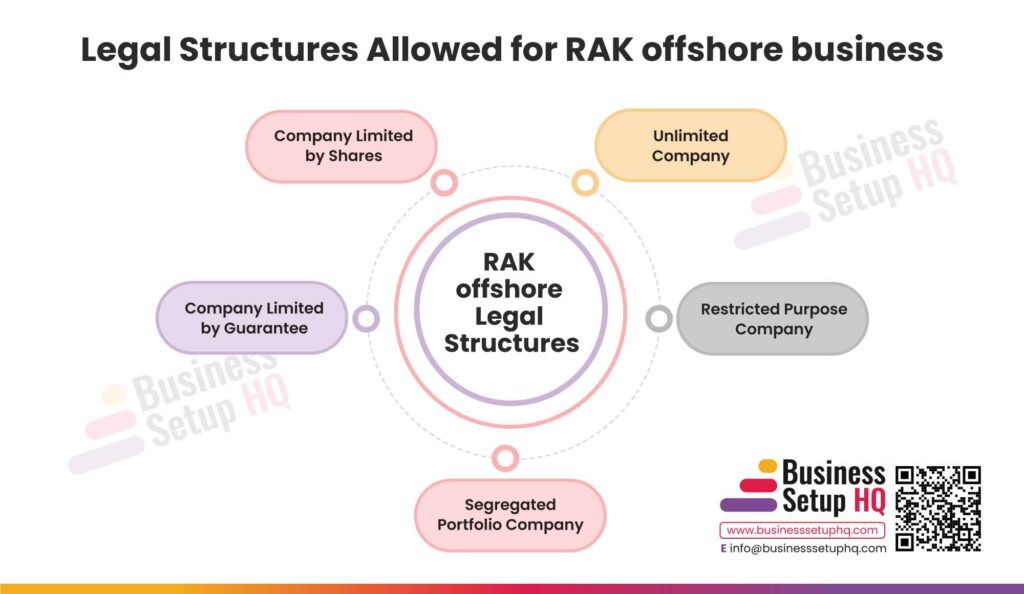Cost-Effective Offshore Company Formation Designed Around Your Needs
Cost-Effective Offshore Company Formation Designed Around Your Needs
Blog Article
Navigating the World of International Business: Insights on Offshore Company Formation
Offshore Company Formation presents a tactical avenue for worldwide service operations. It uses notable benefits, such as tax optimization and improved privacy. The process is not without its obstacles. Understanding the intricacies of regulatory requirements and different territories is necessary. As services consider these options, the steps involved can substantially influence their long-lasting success. What are the vital aspects that can result in effective overseas management?
Comprehending Offshore Companies: Meaning and Function
Offshore companies have ended up being a focal point in international business conversations because of their distinct legal and monetary structures. These entities are established in jurisdictions beyond the owner's country of residence, typically with beneficial regulatory settings. Generally, overseas companies offer numerous functions, such as asset protection, tax obligation optimization, and improved privacy. They can run in several industries consisting of modern technology, finance, and trade, providing versatility for international operations.The specifying feature of an offshore Company is its capacity to conduct company internationally while taking advantage of decreased tax obligation responsibilities and regulatory burdens. This framework attract financiers and business owners seeking to diversify their portfolios and handle dangers effectively. In addition, lots of offshore jurisdictions offer rewards to bring in foreign investment, bring about an increase in the Formation of these firms. Understanding the interpretation and function of offshore companies is essential for maneuvering through the intricacies of international business and funding flow.
Trick Benefits of Offshore Company Formation
The Formation of an overseas Company offers several compelling benefits that bring in investors and business owners alike. Among the key benefits is tax optimization; numerous jurisdictions give positive tax obligation prices or exceptions, enabling services to make the most of revenues. In addition, overseas firms usually enjoy better privacy, as lots of jurisdictions have rigorous personal privacy laws securing the identities of Company owners and shareholders.Another considerable advantage is asset protection. Offshore entities can safeguard possessions from political instability and financial recessions in the proprietor's home country. These business can facilitate global trade, providing simple accessibility to global markets and simplifying cross-border transactions.The adaptability in corporate framework likewise allures to company proprietors, as offshore business can be tailored to meet certain functional needs. Overall, the strategic Formation of an offshore Company can result in boosted financial safety, functional effectiveness, and a robust worldwide existence.

Usual Difficulties in Establishing Offshore Entities
Establishing overseas entities offers numerous obstacles that companies should navigate. Secret issues include regulative conformity, which can differ considerably across territories, and the effect of social distinctions on operations. Furthermore, companies need to take into consideration the prices and threats connected with preserving an offshore visibility, which can affect overall practicality.
Regulatory Compliance Issues
Navigating regulatory compliance concerns presents substantial challenges for businesses when they look for to establish offshore entities. Each territory has its very own collection of regulations and guidelines, which can differ extensively and may be tough to navigate. Business frequently deal with difficulties pertaining to tax compliance, anti-money laundering policies, and reporting demands. In addition, modifications in worldwide tax obligation regulations can develop unpredictability, making it vital for companies to stay updated on conformity commitments. Failure to comply with these regulations can lead to extreme penalties, including fines and reputational damages. Engaging and recognizing the lawful structure with local professionals is essential for effective offshore procedures, making sure that services can operate within the confines of the law while maximizing their worldwide technique.
Cultural Distinctions Impact

Cost Considerations and Threats
Guiding through the financial landscape of overseas entity Formation presents different cost considerations and fundamental risks. First configuration costs frequently include lawful fees, registration expenditures, and conformity costs, which can collect significantly. Additionally, continuous upkeep expenses such as annual charges and bookkeeping solutions need to be factored in. Rising and fall regulatory environments in various jurisdictions posture risks, possibly leading to lawful difficulties or unforeseen costs. Businesses might likewise encounter challenges connected to taxation, banking, and reputational problems, which can affect profitability and operational effectiveness. Possible entrepreneurs should perform comprehensive due diligence and financial forecasting to mitigate these risks and assure sustainable development. Understanding these cost factors to consider is essential for successful offshore business ventures.
Actions to Set Up an Offshore Company
Developing an overseas Company entails several crucial actions that call for careful factor to consider. Key variables consist of guaranteeing and picking the proper territory conformity with neighborhood regulations, together with collecting essential documentation. Recognizing these elements is essential for a successful offshore business arrangement.
Selecting the Right Jurisdiction
Picking the appropriate jurisdiction is essential for anybody seeking to establish up an overseas Company, as it can significantly affect the company's legal responsibilities, tax responsibilities, and functional convenience. Numerous variables should be thought about, including the political stability, regulative environment, and tax incentives provided by potential territories. Popular options often consist of nations with desirable tax obligation routines, such as the British Virgin Islands or Cayman Islands, because of their low or zero tax obligation rates. Additionally, the convenience of operating and the reputation of the territory can influence capitalist self-confidence and market accessibility. Eventually, a well-informed choice based upon complete research study will certainly ensure the overseas Company is positioned for lasting success and compliance with global requirements.
Needed Documentation and Conformity
When setting up an offshore Company, recognizing the essential paperwork and conformity needs is important to guarantee a smooth procedure. Trick papers typically consist of a certification of consolidation, a memorandum and posts of organization, and evidence of identification for supervisors and investors. Some jurisdictions might need extra details, such as company strategies or financial institution referrals. Conformity with local laws is crucial, which commonly involves designating a signed up representative and keeping a registered office. Routine coverage and adherence to tax obligation obligations need to additionally be taken into consideration. Failure to conform with these needs can bring about fines or also dissolution read review of the Company. Extensive prep work and examination with legal professionals can aid navigate these intricacies successfully.
Choosing the Right Jurisdiction for Your Offshore Company
Exactly how can one figure out the most suitable jurisdiction for an offshore Company? Picking the right jurisdiction requires careful factor to consider of multiple factors. First, the lawful and tax environment plays a vital function; jurisdictions with favorable tax routines may enhance business profitability. Furthermore, the political stability and financial environment of a place can impact long-lasting company viability.Another essential aspect is the availability of economic services and banking facilities, which promote smooth procedures. Possible local business owner ought to also think about the ease of operating, consisting of the speed of enrollment and the quality of regulations.Furthermore, language obstacles and cultural distinctions can influence procedures; therefore, straightening with a territory that aligns with company goals and individual comfort is important. Eventually, complete research study and specialist recommendations can lead business owners in making a notified choice that aligns with their critical purposes.
Compliance and Regulative Factors To Consider

Best Practices for Handling an Offshore Business
Taking care of an overseas service requires calculated planning and meticulous execution to maximize efficiency and mitigate threats. First, establishing a durable conformity structure is vital to navigate varying laws across jurisdictions. Normal audits and risk assessments assist identify prospective vulnerabilities.Moreover, leveraging regional proficiency through collaborations with neighborhood specialists can boost operational efficiency and cultural understanding. Using modern technology, such as cloud-based monitoring systems, simplifies interaction and information monitoring, making it possible for far better decision-making. In addition, maintaining clear financial records and making certain prompt tax obligation filings are important to support the Company's stability. Buying team training and growth fosters an experienced workforce, promoting development and adaptability.Finally, establishing clear performance metrics and crucial performance indicators (KPIs) helps assess company progress and inform critical modifications. By sticking to these ideal methods, companies can efficiently manage their offshore procedures, making certain lasting success and sustainability in a competitive global marketplace.
Frequently Asked Inquiries
What Is the Expense of Developing an Offshore Company?
The cost of forming an overseas Company varies extensively relying on territory, legal requirements, and solutions needed. Usually, costs can range from a couple of hundred to a number of thousand dollars, including registration, compliance, and yearly fees.
How much time Does It Take to Develop an Offshore Entity?
The time needed find out to establish an overseas entity varies considerably, typically varying from a couple of days to numerous weeks (offshore company formation). Variables influencing this duration consist of jurisdiction, called for documentation, and the effectiveness of the company included
Can Individuals Form Offshore Companies Without an Organization Partner?
People can indeed create offshore firms without a business partner. Several territories permit single-member entities, equipping entrepreneurs to establish and handle their businesses separately, while still taking advantage of prospective tax obligation benefits and legal protections.
Exist Any Tax Advantages for Foreign Investors?

What Sort Of Organizations Typically Make Use Of Offshore Firms?
Offshore business are frequently made use of by different markets, including innovation, e-commerce, and money. These entities typically offer purposes such as possession security, tax optimization, and personal privacy, appealing to both international corporations and private business owners. Offshore firms have actually become a focal factor in international service conversations due to their one-of-a-kind legal and economic structures. They can operate in multiple sectors consisting of modern technology, financing, and profession, providing versatility for international operations.The specifying attribute of an overseas Company is its ability to carry out organization internationally while benefiting from reduced tax responsibilities and regulatory burdens. In addition, overseas companies typically delight in higher privacy, as several jurisdictions have strict personal privacy legislations securing the identities of Company owners and shareholders.Another significant benefit is property defense. These firms can promote international trade, providing easy redirected here access to worldwide markets and simplifying cross-border transactions.The flexibility in corporate framework additionally allures to organization proprietors, as overseas business can be customized to satisfy particular operational needs. Selecting the appropriate jurisdiction is vital for any individual looking to set up an offshore Company, as it can significantly impact the service's legal responsibilities, tax liabilities, and functional ease.
Report this page